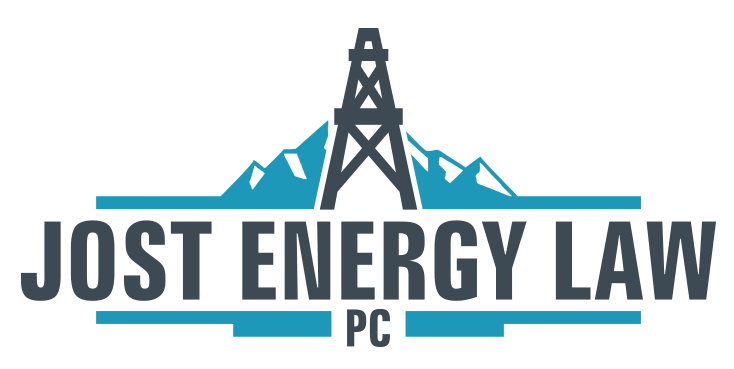News & Alerts
March 15, 2019 ADDITIONAL AMENDMENTS ADOPTED TO SB19-181
SB19-181 was introduced in the House on March 14, 2019 and it will be assigned to the following three House Committees: Energy & Environment, Finance, and Appropriations. The Bill passed through the Senate with a few additional amendments. A summary of the most significant SB19-181 amendments approved in the Senate follows:
- Royalty rate for pooling was decreased from 15% to 13%; maintained language requiring a Pooling Applicant to prove that it either (1) filed an Application for a permit with the local jurisdiction, or (2) the local government does not regulate the siting of locations; maintained the requirement that the Applicant owns, or has secured the consent of the owners of, more than 50% of the mineral interests to be pooled.
- One of the Commissioner seats was expanded to include “TECHNICAL EXPERTISE RELEVANT TO THE ISSUES CONSIDERED BY THE COMMISSION OR” soil conservation or reclamation – still confined to one industry member.
- Local government land use authority expanded to “A LOCAL GOVERNMENT’S REGULATIONS MAY BE MORE PROTECTIVE OR STRICTER THAN STATE REQUIREMENTS”.
- Requires the Director to publish the moratorium criteria following a public comment period: “[DIRECTOR] DETERMINES, PURSUANT TO OBJECTIVE CRITERIA TO BE PUBLISHED BY THE DIRECTOR WITHIN THIRTY DAYS AFTER THE EFFECTIVE DATE OF THIS SUBSECTION… AND FOLLOWING A PUBLIC COMMENT PERIOD”.
- Narrows the list of COGCC Rulemakings that have to occur during the moratorium to the following 3:
(2.5) (a) – Commission regulation of oil and gas operations to protect and minimize adverse impacts to public health, safety, and welfare
(11) (c) – rulemaking on alternative location analysis processes
(19) – flowlines, inactive and temporarily abandoned, as well as shut in wells
- Amended Local Control authority to the following: REGULATING OIL AND GAS OPERATIONS…TO PROTECT AND MINIMIZE ADVERSE IMPACTS TO PUBLIC HEALTH, SAFETY, AND WELFARE AND THE ENVIRONMENT. FOR PURPOSES OF THIS SUBSECTION (1)(h), “MINIMIZE ADVERSE IMPACTS” MEANS, TO THE EXTENT NECESSARY AND REASONABLE, TO PROTECT PUBLIC HEALTH, SAFETY, AND WELFARE, THE ENVIRONMENT BY AVOIDING ADVERSE IMPACTS FROM OIL AND GAS OPERATIONS AND MINIMISING AND MITIGATING THE EXTENT AND SEVERITY OF THOSE IMPACTS THAT CANNOT BE AVOIDED.
- Adds a back-stop to both COGCC and Local Government regulation “minimizing adverse impacts” to THE EXTENT NECESSARY AND REASONABLE TO PROTECT PUBLIC HEALTH, SAFETY AND WELFARE, THE ENVIRONMENT AND WILDLIFE RESOURCES
- Section 4 (29-20-104) establishes a Technical Review Board to “PROVIDE A LOCAL GOVERNMENT WITH TECHNICAL EXPERTISE REGARDING WHETHER A PRELIMINARY OR FINAL DETERMINATION OF THE LOCATION OF AN OIL AND GAS FACILITY OR OIL AND GAS LOCATION COULD AFFECT OIL AND GAS RESOURCE RECOVERY”. The Board will be established at the request of either the local government or the operator. An operator can ask the Director to appoint the board to conduct a final review of the local government’s final determination on its application, and can also ask for board review if the local government has not made a final determination on its application within 210 days after submittal. The board must issue a report, within 60 days of establishment of the board, that addresses the issues in dispute, including impacts to the recovery of oil and gas by the local government’s decision on the application, whether the local government is requiring technologies that are not available or are impracticable, and whether the operator is using best management practices. Once it receives the report, the local government can follow the recommendations or “do nothing” with them.

